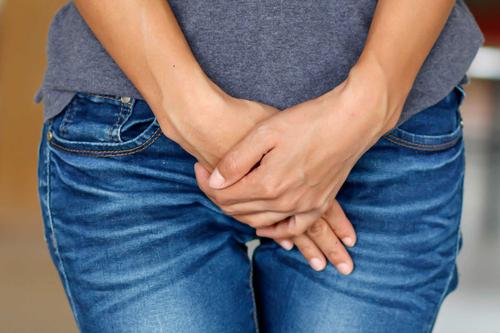Want to Pee but Can’t? Reasons and Solutions Why This Could Happen
Ever had a rush to the bathroom only to find out you were unable to pee? Being able to pass urine is a basic human function. Any problems with urinating indicate an underlying problem.
Being Unable to Pee: Causes and Symptoms
1. Urinary Tract Infection
Having the urge to pee but can't is something that men suffer ten times more commonly than women; however, by no means is it only limited to men. Bladder, urethra, or prostate infection and inflammation may cause an obstruction of the urethra in men. Meanwhile, a bladder infection or cystitis can cause urinary obstruction in women.
Symptoms associated with a urinary tract infection include a frequent urge to urinate even when the bladder is empty, a burning sensation while urinating, an unusually bad odor, and fever.
2. Urinary Retention
Urinary retention can be caused by an obstruction or a problem with the nerves regulating the sphincter valves.
- Blockage/Obstruction:
One of the most common reasons why men can't pee even when they have the urge is due to an enlarged prostate. The prostate surrounds your urethra, potentially applying pressure on it and causing a blockage. Prostate cancer has the same outcome.
A hernia, tumor, or a large cyst are common reasons for urine blockage in women.
- Nerve Problems:
Spinal cord compression, which is a very serious problem and a medical emergency, could manifest as an urge to pee but can't for patients. Injury to the spinal cord, tumor, uncontrolled diabetes, or a ruptured disk in the spinal cord can all cause urination problems.

3. Trauma
A physical injury to the urethra can result in urinary retention as well. Fractures of the pelvis, injuries to the penis, perineum, or healing from such injuries may block the urethra. In these cases, difficulty generating the urine stream is the main symptom.
4. Surgery
If you have been wondering 'Why can't I pee?' after getting a surgery done, then the answer may reflect in the underlying procedure. Surgery for benign prostate enlargement or for prostate cancer can result in the formation of scar tissue that constricts the opening of the urethra. Difficulties starting a urinal stream as well as pain during urination are the most common symptoms seen with this cause.
5. Medications
There are a number of medicines that are able to cause difficulties in peeing as a side effect. Common over-the-counter medication for a cold or an allergy like ephedrine, pseudoephedrine, antihistamine syrups or tablets, and antidepressants may all cause urinary retention.
Apart from these products, a wide variety of medicines ranging from anti-hypertensive drugs (nifedipine, hydralazine), antiparkinsonian medication (amantadine, benztropine, levodopa), antipsychotics drugs (chlorpromazine, fluphenazine, thiothixene), and others may contribute to peeing difficulties.
If you find yourself having the urge to pee but can't after starting a new medication, then get in touch with your doctor to get the problem sorted out.
6. Other causes
There are a few other possible causes like chronically holding your urine for long periods, or drinking too much alcohol, or being immobile for long durations. Certain psychological disorders can also result in the same problem.
People might also complain about an increased frequency of urination, an inability to completely empty the bladder, difficulty starting a urine stream, pain in the lower abdomen, and even back pain.
Corresponding Treatment and Prevention
1. Treatment
- Severe conditions
Acute symptoms of urinary retention have to be treated as a medical emergency. Seek medical intervention as soon as possible!
People that have been suffering from severe constipation find relief in urinary retention after taking fiber supplements, laxatives, or stool softeners.
- Mild conditions
Mild symptoms might call for some home remedies. Sitting in a warm tub of water to relax the pelvic muscles works as well as an increased amount of movement for people with limited mobility.
Just sitting on the toilet and listening to running water, relaxing, or rinsing the perineum can also bring about the urge to pee. Dipping the fingers into a bowl of warm water until the urge to pee hits might also work.
2. Prevention
Urinary retention can be prevented by following good urinary habits.
- Most people urinate about 4-6 times a day. Holding the urine for a long time should be avoided because it can lead to bladder distention, especially over the course of 20-30 years.
- The use of over-the-counter cold medication and decongestants should be minimized since they have been proven to increase urinary retention.
- Alcohol intake should be moderated as it can lead to increased urine production.
- Diabetics should ensure that they manage the condition well; otherwise, it will lead to an increased likelihood of not being able to pee.
The Final Word
The inability to empty the bladder completely and constantly having the urge to pee is frustrating. This condition, called urinary retention, can occur in both men and women. Urinary retention may indicate the presence of a minor infection or something much more serious. Either way, it shouldn't be ignored.
YOU MAY LIKE
-
Amazing Facts About Pain in the Back and Frequent Urges to Urinate
-
Why Does It Hurt When I Pee
-
Why Do You Pee When You Cough?
-
6 Effective Ways to Treat Urinary Tract Infection (UTI)
-
Ways to Avoiding Urinary Tract Infections
-
Vital Tips to Prevent Kidney Stones
-
Best Ways to Get Rid of Kidney Stones
-
Abdominal Pain and Frequent Urination Female: Causes and Tips
-
Causes and Tips for White Blood Cells in Urine
-
Why the Epithelial Cells Appear in Urine?
